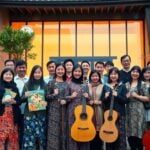When embarking on the journey to secure funding, the first step is to thoroughly understand the mission and priorities of the funding agency. Each organization has its own set of goals, values, and areas of interest that guide their funding decisions. By aligning your proposal with these priorities, you increase your chances of success significantly.
Take the time to read through the agency’s mission statement, strategic plans, and any recent publications or reports they have released. This will provide insight into what they value most and how your project can fit into their overarching objectives. Moreover, it is essential to consider the specific types of projects that the agency has funded in the past.
Analyzing previously funded proposals can reveal trends in their funding patterns and highlight the characteristics of successful applications. For instance, if a particular agency has a history of supporting community-based initiatives, framing your research within a community context may resonate more with their mission. Understanding these nuances not only helps in crafting a proposal that speaks directly to the agency’s interests but also demonstrates your commitment to contributing to their goals.
Developing a Clear and Compelling Research Question
A well-defined research question is the cornerstone of any successful grant proposal. It serves as the guiding star for your project, shaping your methodology, objectives, and expected outcomes. To develop a compelling research question, start by identifying a gap in existing knowledge or a pressing issue that needs addressing.
This requires critical thinking and an understanding of the current landscape in your field. A strong research question should be specific, measurable, and relevant to both your discipline and the funding agency’s priorities. Once you have identified a potential question, refine it further by considering its significance and feasibility.
Ask yourself: Why does this question matter? Who will benefit from the findings? Is it realistic given the resources and time available?
Engaging with peers or mentors during this process can provide valuable feedback and help you hone your question into something that is not only intriguing but also impactful. A clear and compelling research question not only captures the attention of reviewers but also lays a solid foundation for the rest of your proposal.
Conducting a Thorough Literature Review
A comprehensive literature review is essential for situating your research within the existing body of knowledge. It demonstrates your understanding of the field and highlights how your work builds upon or diverges from previous studies. Begin by identifying key themes, theories, and methodologies relevant to your research question.
Utilize academic databases, journals, and other scholarly resources to gather a wide range of sources. As you review the literature, take detailed notes on significant findings, gaps in research, and potential methodologies that could inform your own work. In addition to summarizing existing research, critically analyze it to identify strengths and weaknesses.
This analysis will not only help you articulate the significance of your own research but also provide context for why your project is necessary. Highlighting gaps in the literature can effectively justify your research question and demonstrate its relevance to current discussions in your field. A well-executed literature review not only strengthens your proposal but also positions you as a knowledgeable and credible researcher.
Crafting a Detailed Research Plan and Timeline
A detailed research plan is crucial for outlining how you intend to execute your project. This plan should include specific objectives, methodologies, and anticipated outcomes. Clearly articulate each step of your research process, from data collection to analysis, ensuring that it aligns with your research question and objectives.
Providing a clear methodology not only demonstrates your preparedness but also reassures reviewers that you have a solid plan for achieving your goals. In addition to outlining your research methods, it is essential to create a realistic timeline for your project. Break down each phase of your research into manageable tasks with specific deadlines.
This timeline should account for potential challenges or delays while remaining ambitious enough to demonstrate your commitment to timely completion. A well-structured timeline not only helps you stay organized but also provides reviewers with confidence in your ability to execute the project efficiently.
Building a Strong Budget and Justification
A well-constructed budget is a critical component of any grant proposal. It should reflect all anticipated costs associated with your project, including personnel, materials, travel, and indirect costs. When developing your budget, be meticulous in estimating expenses and ensure that they align with the scope of your project.
Reviewers will scrutinize your budget for accuracy and justification; therefore, it is essential to provide clear explanations for each line item. In addition to presenting a detailed budget, include a justification that explains why each expense is necessary for the success of your project. This justification should connect back to your research objectives and demonstrate how each cost contributes to achieving those goals.
For example, if you are requesting funding for travel to conduct fieldwork, explain how this travel is essential for data collection and how it will enhance the overall quality of your research. A strong budget and justification not only reflect careful planning but also instill confidence in reviewers regarding the feasibility of your project.
Demonstrating the Impact and Significance of the Research
One of the most critical aspects of any grant proposal is demonstrating the impact and significance of your research. Reviewers want to know how your work will contribute to advancing knowledge in your field or addressing real-world problems. Begin by articulating the broader implications of your research findings—how they might influence policy, practice, or future research directions.
Highlighting potential applications can make your proposal more compelling. Additionally, consider including specific metrics or indicators that will allow you to measure the impact of your research over time. This could involve outlining how you plan to disseminate findings through publications, presentations, or community engagement efforts.
By providing a clear vision for how your work will reach its intended audience and effect change, you enhance the overall appeal of your proposal. Demonstrating impact not only showcases the relevance of your research but also aligns with many funding agencies’ goals of supporting projects that lead to tangible benefits.
Writing a Clear and Persuasive Narrative
The narrative of your grant proposal is where you have the opportunity to engage reviewers on a personal level. A clear and persuasive narrative weaves together all elements of your proposal into a cohesive story that highlights the importance of your research question, methodology, and anticipated outcomes. Start with an engaging introduction that captures attention and sets the stage for what follows.
Use clear language and avoid jargon whenever possible; remember that reviewers may come from diverse backgrounds. As you progress through the narrative, ensure that each section flows logically into the next. Use transitions effectively to guide readers through your thought process while reinforcing key points about significance and impact.
Incorporate anecdotes or real-world examples where appropriate to illustrate concepts or demonstrate relevance. A compelling narrative not only makes for an enjoyable reading experience but also enhances the overall persuasiveness of your proposal.
Seeking Feedback and Revision from Peers and Mentors
Once you have drafted your proposal, seeking feedback from peers and mentors is an invaluable step in refining your work. Fresh eyes can catch errors or inconsistencies that you may have overlooked while working on it for an extended period. Consider forming a small group of colleagues who can provide constructive criticism on various aspects of your proposal—from clarity and coherence to budget accuracy and methodological soundness.
Incorporating feedback is an iterative process; be open to making revisions based on suggestions received. This may involve reworking sections for clarity or adjusting timelines based on practical considerations raised by others. Additionally, consider seeking feedback from individuals who have experience with grant writing or who have successfully secured funding themselves; their insights can be particularly beneficial in navigating common pitfalls or enhancing persuasive elements within your narrative.
Ultimately, taking the time to revise based on feedback can significantly elevate the quality of your proposal and improve its chances of success. In conclusion, securing funding through scholarships, fellowships, grants, loans, or investments requires careful planning and execution at every stage of the proposal process. By understanding funding agency priorities, developing compelling research questions, conducting thorough literature reviews, crafting detailed plans and budgets, demonstrating impact, writing persuasive narratives, and seeking feedback from peers and mentors, you can enhance your chances of success significantly.
Each step builds upon the last, creating a comprehensive approach that not only showcases your project’s potential but also reflects your dedication as a researcher committed to making meaningful contributions in your field.


























